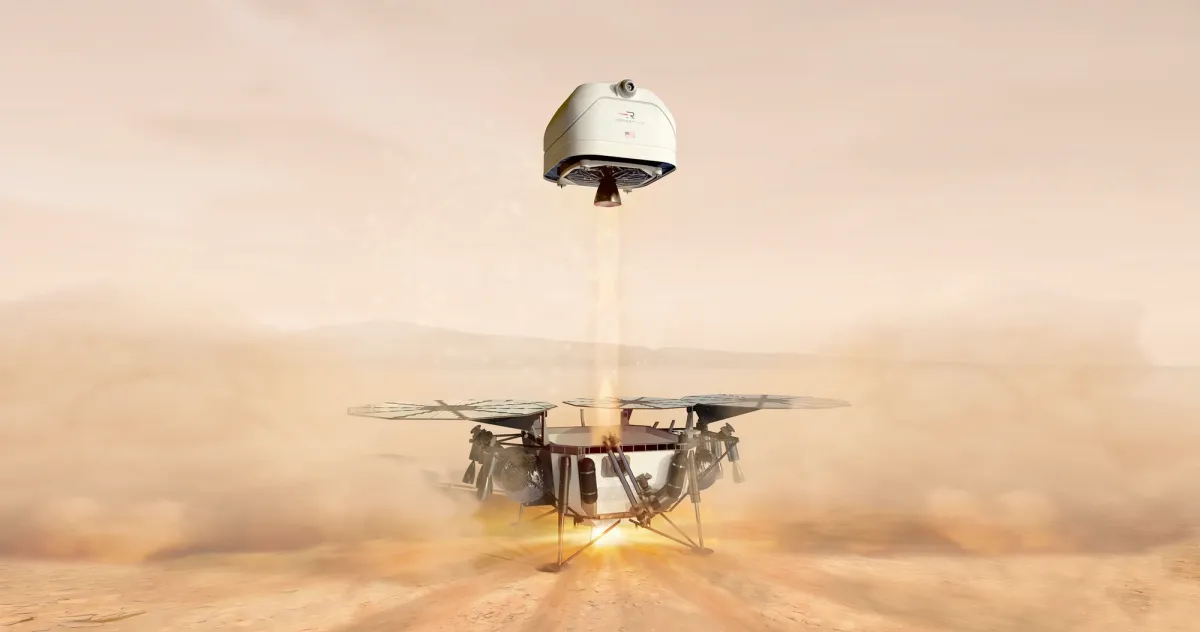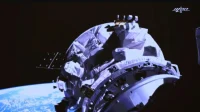Rocket Lab has called on NASA's incoming administration to reconsider the agency's approach to the Mars Sample Return (MSR) program, proposing a faster and more cost-effective alternative.
NASA announced on January 7 that it will spend the next year and a half evaluating two new potential architectures for its Mars Sample Return mission. These options include using a version of the “sky crane” landing system developed for the Curiosity and Perseverance rovers, or a “heavy lander” designed by commercial partners.
These new options follow a review of studies commissioned in mid-2024, including one by Rocket Lab, which was awarded a contract later than other contributors. Rocket Lab presented an alternative end-to-end system that would integrate the company's own technologies in launch vehicles, spacecraft, and other systems.
Rocket Lab's proposal closely mirrors NASA's existing plans, utilizing a sample retrieval lander, a Mars ascent vehicle to launch samples into orbit, and an Earth return orbiter to bring the samples back. However, the company argues that it can deliver this system faster and at a significantly lower cost. According to NASA, the two architectures being studied would cost between $5.8 billion and $7.7 billion, with sample return slated between 2035 and 2039, a reduction from previous estimates. In contrast, Rocket Lab claims it could execute the mission for under $4 billion, with sample return as early as 2031.
Richard French, Rocket Lab's vice president of business development and strategy for space systems, expressed confidence in the company's capabilities: “We think we're the organization that can bring these Mars samples home faster and cheaper,” he said in an interview following NASA's announcement. He emphasized that the company's work on various projects, such as the Neutron launch vehicle and the Victus Haze mission for the U.S. Space Force, would support their Mars mission. However, French acknowledged that Rocket Lab had received limited feedback from NASA regarding its MSR proposal. “It was pretty frustrating,” he remarked. “We received very little to no feedback on our inputs.”
In light of this, Rocket Lab is pushing for NASA to open the program to commercial competition instead of continuing further studies. French suggested that initial studies involving multiple commercial providers could provide more affordable solutions and encourage innovation. He added, “If NASA wants to show leadership, it's to lean into commercial capability and be bold and compete.
The Planetary Society also expressed concern over NASA's decision to delay a final MSR decision. In a January 8 statement, the organization called for a more decisive path forward, noting that it has been over two years since NASA paused work on MSR. “It is time to commit to a path forward to ensure the return of the samples already being collected by the Perseverance rover,”the statement read.
French, echoing this sentiment, questioned NASA's approach to further studies: “It's kind of interesting to note that NASA spent a whole year assessing outcomes, and the plan forward is simply to study it for another year and defer the decision for another year,” he said. “This is not a problem that needs a lot more study by the agency. We want to proceed right now into early design phases.
Rocket Lab's call to action comes at a pivotal time for the Mars Sample Return mission, as the new administration prepares to review NASA's plans.






